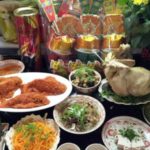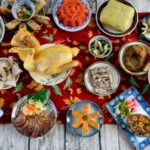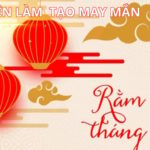Ramadan in January is considered an important full moon day as it is the first full moon day of the year, which has many spiritual meanings. Ancient people believed that throughout the year, there is nothing more precious than a full moon in January. According to the traditional production method of the past, after Ramadan in January, farmers went down to the fields to plow and sow, and migrant workers started working away from home to make a living. Therefore, the ancient people worshipped Ramadan in January with great care and solemnity, preparing a large feast to express their gratitude to ancestors, deities, and seek good luck. Another theory is that Ramadan in January is also the time for monks to sit and listen to the Buddha’s teachings, and it is the Buddha’s birthday. Therefore, whether it is a vegetarian or non-vegetarian offering, in the Vietnamese people’s belief, Ramadan in January is still the most important full moon day of the year.
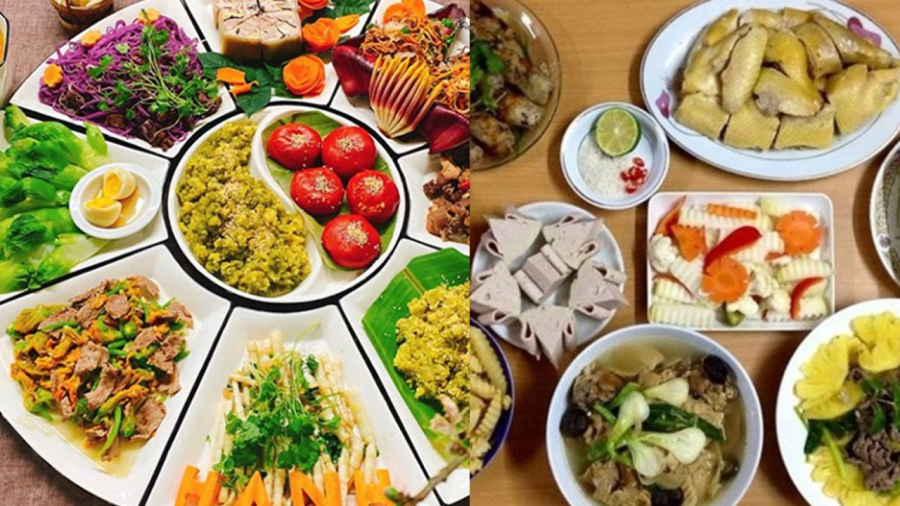
To ensure the solemnity of Ramadan in January without violating taboos to bring good luck throughout the year, ancient people advised to avoid the following:
Avoid using fake vegetarian food
On Ramadan in January, depending on the belief, you can offer vegetarian or non-vegetarian food, but when offering vegetarian food, you should never choose fake vegetarian food such as vegetarian sausage, vegetarian shrimp, vegetarian chicken feet, vegetarian meat… To make a vegetarian feast, you should cook pure vegetarian dishes using normal vegetarian ingredients, without buying fake vegetarian items because they will not have a sacred meaning but will be artificial.
Avoid burning excessive gold and incense
During the Ramadan festival in January, people pray for a peaceful new year, good health, fullness, and prosperity, so homeowners need to offer their hearts sincerely instead of burning excessive gold and incense, causing wastefulness and superstition. Especially if you are a Buddhist, you should remember that Buddhism does not encourage the burning of gold and incense, as it is wasteful, pollutes the environment, and increases the risk of fire and explosion.
Avoid using fake flowers and fruits
Fake flowers and fruits should not be offered because they symbolize artificiality. Moreover, these fake items are only for decoration and should not be treated as offerings. When used for decoration, they tend to collect dust and make the worship space dirty. Offering fake items is taboo and disrespectful.
Avoid moving the incense burner
On the full moon day of January, some families clean their altars to ensure cleanliness. But in feng shui, altar cleaning should not involve moving the incense burner to avoid disturbing the flow of energy and affecting the rest of the ancestors. Before cleaning, you should light a incense stick and pray to the deities and ancestors to clean the altar, preparing for the Ramadan ritual in January.
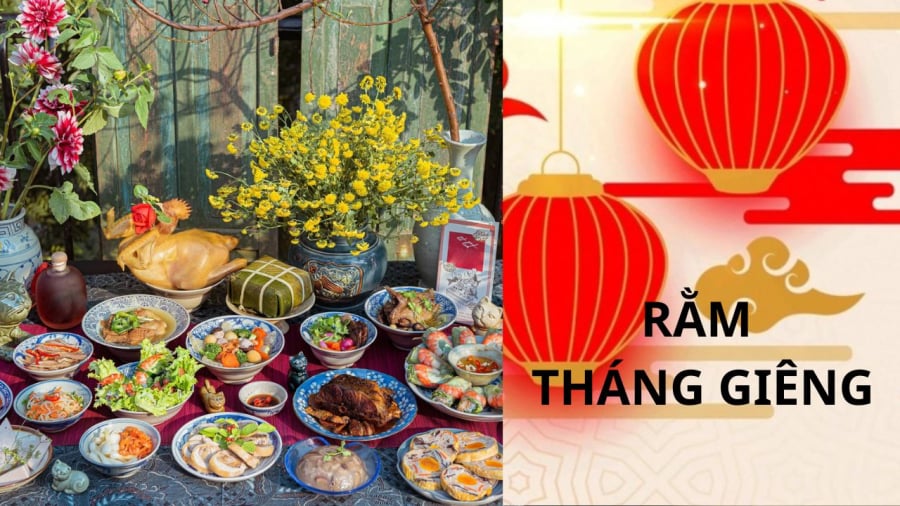
Avoid offering pig’s head
According to folk beliefs, on the Ramadan feast, you can offer both vegetarian and non-vegetarian dishes, but you should avoid offering pig’s head. This taboo comes from the viewpoint of avoiding killing and pigs in Vietnamese people’s lives as they are animals that bring economic benefits to families. Meanwhile, roosters are spiritual animals that help connect with deities.
Avoid placing real money on the altar
Many people believe that placing real money on the altar brings good luck and hides the money to seek fortune. But real money is not an offering item, so placing real money on the altar does not have any meaning. Moreover, money needs to circulate, so after offering, it should be stored away as it has no feng shui value. Money circulates everywhere and is prone to bacteria, affecting the altar’s energy. Moreover, if the money is not obtained from legitimate labor, it damages merit.
On the full moon day of January, you should offer vegetarian food and do good deeds, go to the pagoda, do good work, accumulate merits, release creatures… to create more luck.

When should Ramadan in January be offered?
Many families may offer Ramadan in January a day or two before. However, according to folk beliefs, the most beautiful time to offer Ramadan in January is from 11-1 pm on the 15th of January because that is the time when the Buddha’s pilgrimage will witness and testify for the homeowners.
Especially in 2024, Ramadan in January coincides with the last weekend, which is very convenient for many families to offer. Therefore, you do not need to offer in advance. The weekend is also a time for rest, making it convenient for you to visit pagodas, do good deeds, and accumulate merits.
2023 Seventh Month Kitchen God Offering: Full Details Revealed
2023 marks an important spiritual milestone for many families as the seventh lunar month’s full moon day brings with it the customary worship of the Kitchen God. Find out the specific and intricate steps involved with the traditional Kitchen God worship ritual on the 23rd day of the twelfth lunar month.
























